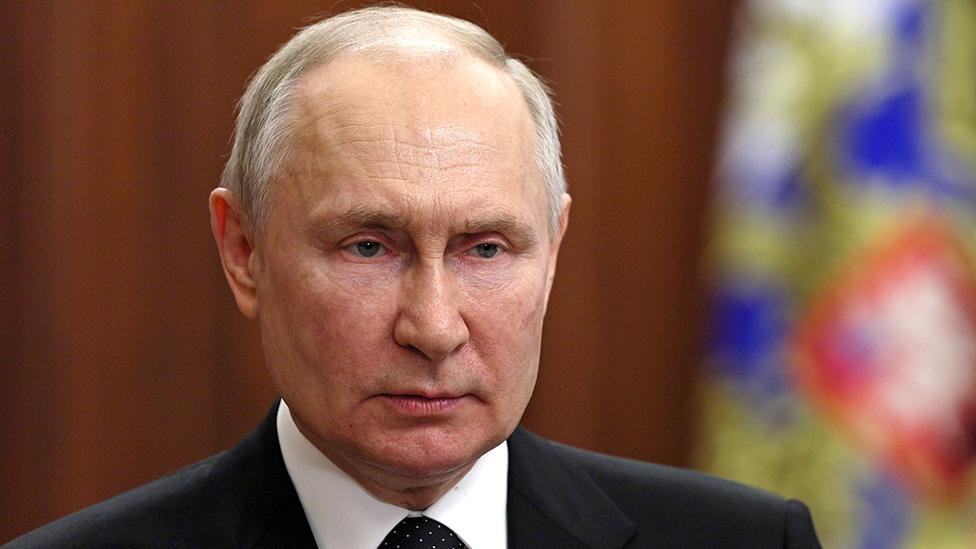Wagner mutiny: Group fully funded by Russia, says Putin
- Published
- comments
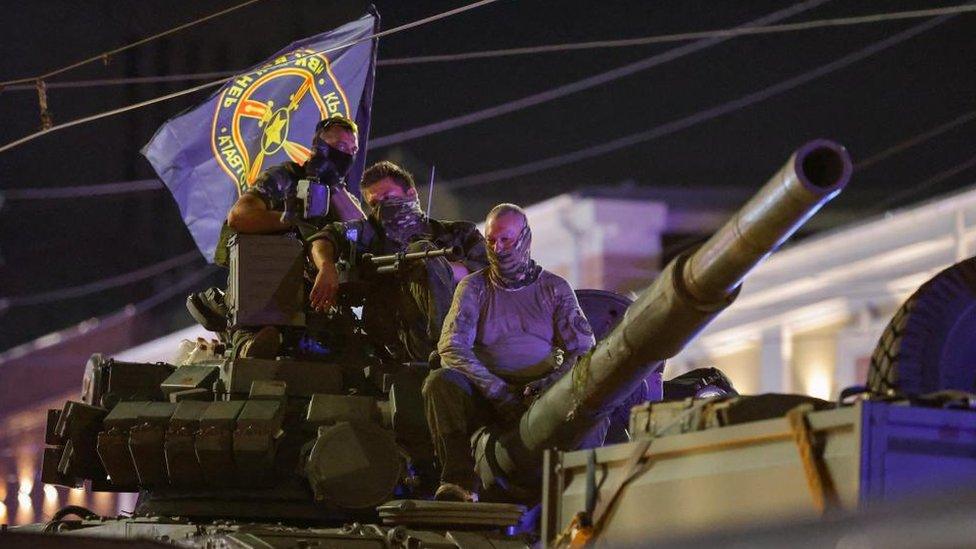
Wagner mercenaries in Rostov-on-Don on Saturday
Russia's president has said members of the Wagner mercenary group were fully funded by the state.
According to Vladimir Putin, Wagner was given 86.262bn roubles ($1bn) from May 2022 to May 2023 alone for salaries and bonuses, which came from the defence ministry and state budget.
The private army's revolt on Saturday rocked Russia.
Its leader, Yevgeny Prigozhin, arrived in Belarus on Tuesday after agreeing to leave Russia.
His arrival was confirmed by Belarusian leader Alexander Lukashenko. Earlier, a private jet linked to Prigozhin was tracked landing in Minsk, the Belarusian capital.
On Saturday, mercenary troops led by Wagner boss Yevgeny Prigozhin took over the southern Russian city of Rostov-on-Don, marched on Moscow and shot down Russian military helicopters and a plane on their way.
Their mutiny was later aborted after a deal was struck with the help of Mr Lukashenko.
The Russian authorities said Wagner will be disarmed but its members will escape prosecution over its short-lived rebellion.
"We always treated fighters and commanders from this group with great respect, because they really showed bravery and heroism," said Mr Putin.
He said authorities would look into how the money paid to Wagner and its leader was spent.
Preparations are under way for the group to hand over its heavy weapons and equipment to the Russian army, the defence ministry said.
Criminal charges have also been dropped against those who took part in the mutiny, according to the FSB security service.
Wagner members were facing prosecution for armed insurrection, but the case has been closed because the mutineers had stopped short of actually committing a crime, the FSB said.
Its fighters can either join the regular army, go home or head for Belarus, Mr Putin said on Monday, adding that the fighters were mostly "patriots" who had been misled into a criminal adventure.
Mr Lukashenko said Belarus has not started building any camps for members of the group, but will accommodate them if they want.
Earlier on Tuesday, Mr Putin told Russian troops in Moscow their actions during the mutiny had prevented a "civil war" and held a minute's silence for those killed.
He insisted that the Wagner forces never had the support of the army or the people, although crowds cheered and applauded Wagner troops as they left Rostov-on-Don.
The treatment of the mercenaries stands in marked contrast to the treatment of opposition politicians and activists, many of whom are in prison simply for speaking out against the war in Ukraine.
Opposition activist Vladimir Kara-Murza, for example, is serving 25 years for treason.
By contrast, Wagner chief Prigozhin and the armed men who took part in the rebellion are seemingly being allowed to go free.
Prigozhin has defended his actions, insisting the revolt was not meant to be a challenge to the leadership of Mr Putin.
Rather, he described it as a bid to save his mercenary group from being absorbed into the Russian army, and to expose the failures of the country's military leadership.
Watch: The day Wagner chief went rogue... in 96 seconds
Related topics
- Published27 June 2023
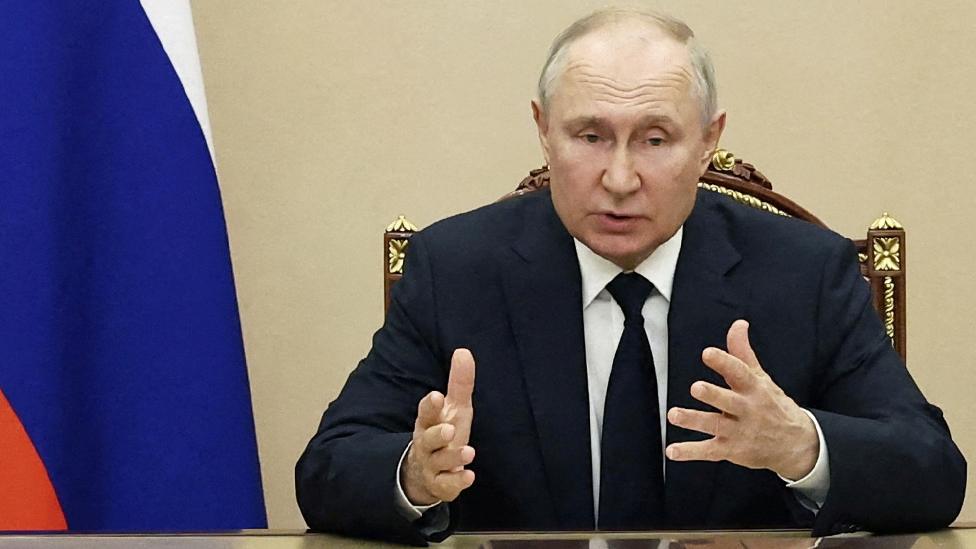
- Published26 June 2023
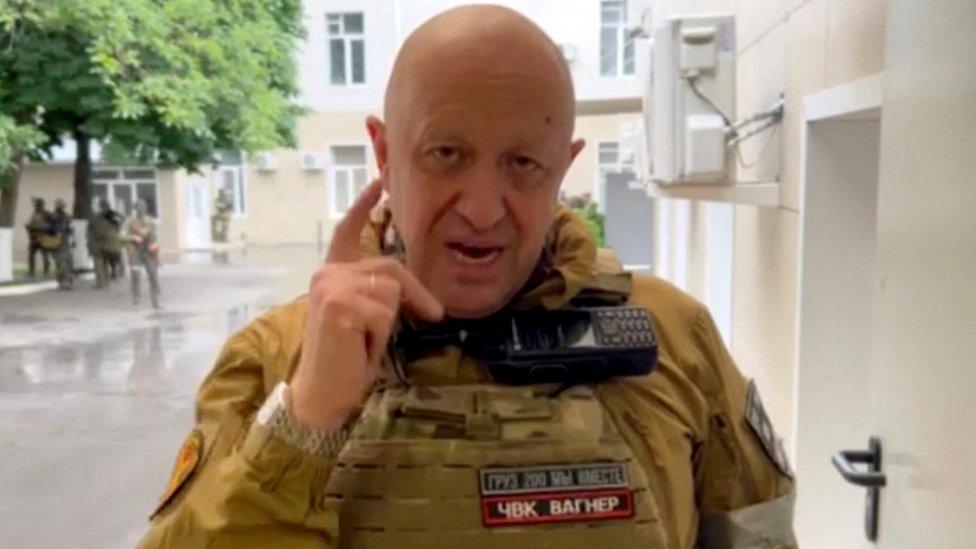
- Published26 June 2023
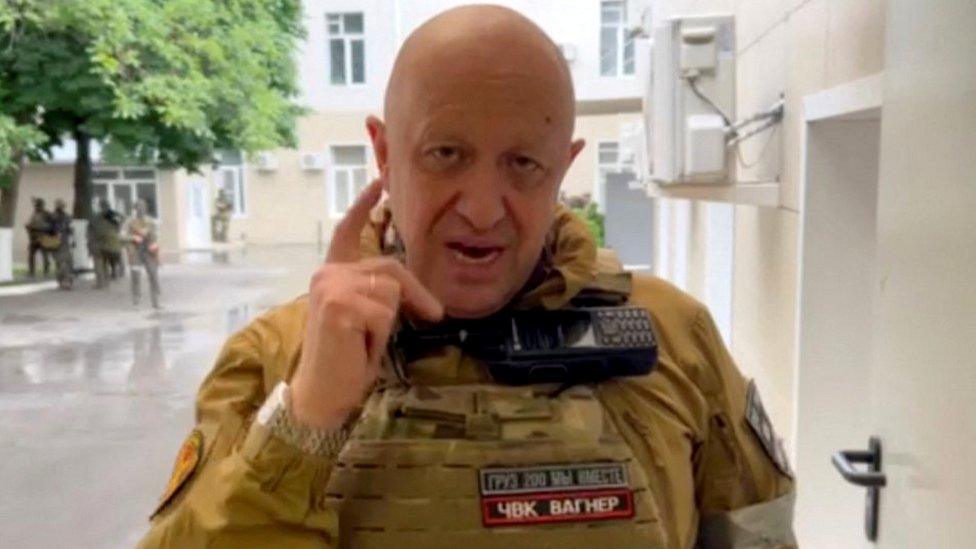
- Published25 June 2023
